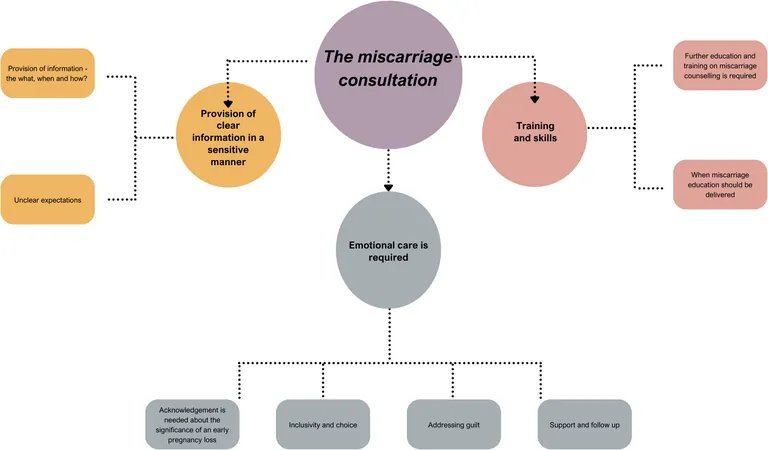
Breaking the Silence: How Miscarriage Communication in Australia Needs a Revamp
2025-08-21
Author: Nur
Understanding Miscarriage in Australia
In Australia, miscarriage, defined as the unintentional loss of a pregnancy before 20 weeks, is more common than many realize—impacting about one in four pregnancies. Despite its prevalence, this heartbreaking experience remains largely unspoken, even among close friends and family. While the physical management is often straightforward, the psychological aftermath can linger far longer.
The Emotional Toll of Loss
Women grappling with miscarriage frequently face overwhelming emotions like helplessness, grief, and guilt. Studies reveal that nearly half of women endure psychological distress long after their loss, with many meeting criteria for anxiety, depression, and PTSD. Alarmingly, the suicide rate among women who have experienced miscarriage is significantly higher compared to those who have successfully delivered.
The Need for Comprehensive Care
For many women, the pain of miscarriage transcends the physical—it can feel like a loss of identity and motherhood, leading to anxiety about future pregnancies. Healthcare professionals (HCPs) often underestimate the emotional impact of miscarriage, which underscores the need for improved emotional support during these consultations. Women who receive emotional backing tend to cope better, while those who feel unsupported report stronger grief reactions.
A Call for Better Communication
Many women express dissatisfaction with the care they receive during miscarriages, citing issues like insensitive communication and insufficient emotional support. There's a clear disconnect between what women seek and what HCPs think they provide. Addressing this gap, research is underway to develop a communication guide specifically for General Practitioners-in-Training (GPiTs) to enhance their ability to counsel women experiencing miscarriages.
Research Insights and Methodology
This qualitative study recruited women who experienced miscarriages within the past two years and GPiTs across Australia to engage in focused discussions. The goal was to unearth shared experiences and identify actionable solutions for better communication.
Key Themes That Emerged
1. **Emotional Care is Essential:** Both groups recognized the crucial need for emotional support. Simple expressions of sympathy can make a significant difference, yet many GPiTs felt ill-equipped to offer this kind of support.
2. **Clearing Miscommunication:** Women expressed frustration over complex medical jargon and the overwhelming volume of information delivered without sensitivity. There's a strong desire for concise, clear, and empathetic communication about what to expect during the miscarriage process.
3. **Training and Education Gaps:** GPiTs highlighted a lack of formal training regarding miscarriage counseling, primarily relying on senior staff. A call for structured education early in medical training was emphasized, suggesting that all healthcare providers interacting with women experiencing losses should receive specialized training.
The Importance of Listening and Supporting
Listening to women’s voices and valuing their experiences can reshape the miscarriage care landscape. Personal anecdotes reinforced the idea that being heard and validated profoundly impacts recovery. Many expressed the need for resources like written materials that they could refer to later, emphasizing the importance of ongoing support and follow-up.
Moving Forward with Compassionate Care
This study points towards a necessary evolution in how healthcare systems address miscarriage—fostering an environment of empathy and understanding. With better communication and support systems, women can navigate this challenging experience with dignity and care.



 Brasil (PT)
Brasil (PT)
 Canada (EN)
Canada (EN)
 Chile (ES)
Chile (ES)
 Česko (CS)
Česko (CS)
 대한민국 (KO)
대한민국 (KO)
 España (ES)
España (ES)
 France (FR)
France (FR)
 Hong Kong (EN)
Hong Kong (EN)
 Italia (IT)
Italia (IT)
 日本 (JA)
日本 (JA)
 Magyarország (HU)
Magyarország (HU)
 Norge (NO)
Norge (NO)
 Polska (PL)
Polska (PL)
 Schweiz (DE)
Schweiz (DE)
 Singapore (EN)
Singapore (EN)
 Sverige (SV)
Sverige (SV)
 Suomi (FI)
Suomi (FI)
 Türkiye (TR)
Türkiye (TR)
 الإمارات العربية المتحدة (AR)
الإمارات العربية المتحدة (AR)